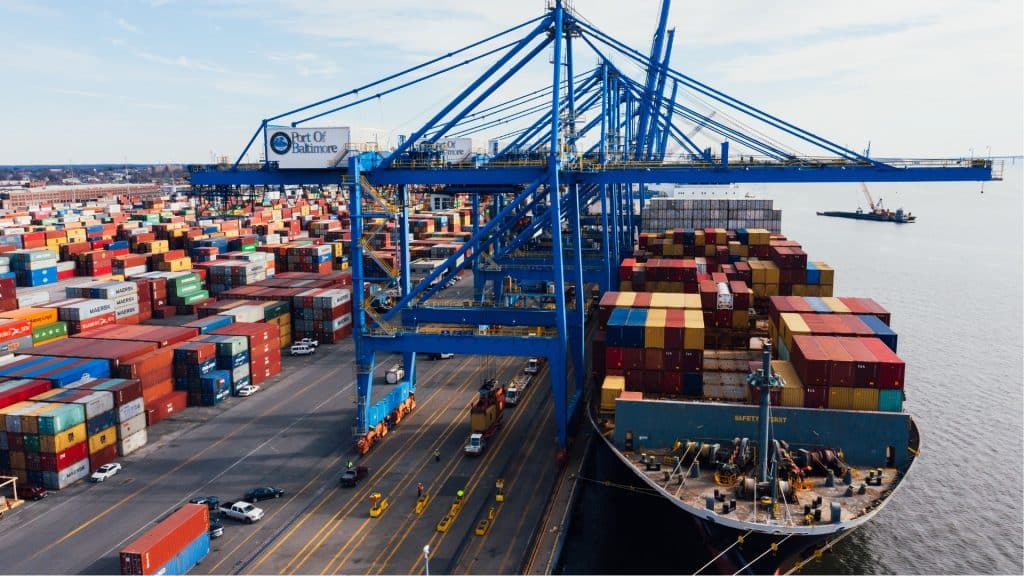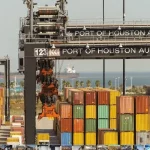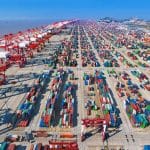ILWU JOB ACTION CAUSING TERMINAL GATE DELAYS IN LOS ANGELES-LONG BEACH: PMA
“Significant delays” have hit some marine terminals at the ports of Los Angeles and Long Beach since the middle of last week PMA, which represents terminal employers in the talks that have dragged on for more than 10 months, said longshore workers represented by Local 13 of the International Longshore and Warehouse Union (ILWU) have since last Wednesday refused to stagger their meal breaks as required, resulting in periods when no work is being done on the docks. “As a result, longshore workers at the Ports of LA and Long Beach are not working the terminals between 12 pm-1 pm and 10 pm-11 pm PMA provided media with photographs showing trucks backed up Friday at the Fenix Marine Terminal at the Port of Los Angeles and the ITS Terminal in Long Beach, long queues it said was the result of the job action.
NOT ALL RECENT IMPORT SHARE LOSS ON WEST COAST IS PERMANENT: ANALYST
The US West Coast’s share of import TEU has declined in recent years. West Coast ports in 2019 received 44 percent of TEU arriving in the United States. In 2022, that figure was down to 40.1 percent. US import TEU were up 17 percent over that time frame, while the volumes arriving on the USWC were up only 6.8 percent. Some 11.6 million import TEU arrived on the USWC in 2022. If regional share had not declined, the number would have been 12.7 million TEU, a swing of 1.1 million TEU, or 9.5 percent.

KNIGHT-SWIFT TO BUY TRUCKLOAD CARRIER U.S. XPRESS FOR $808 MILLION
In a move that will increase its revenue by as much as 30 percent, Knight-Swift Transportation Holdings will acquire U.S. Xpress Enterprises, a Chattanooga, Tennessee-based truckload provider, for approximately $808 million, excluding transaction costs. The deal is the largest acquisition of one publicly owned trucking company by another since TFI International acquired UPS Freight for $800 million in 2021 and is likely to echo across a trucking landscape where many smaller carriers are squeezed for cash and ready to sell. Knight Swift has been expanding its portfolio through acquisitions of less-than-truckload (LTL) carriers in recent years, building a more diversified business. The U.S. Xpress deal breaks that trend, but apparently the chance to buy the carrier was an opportunity too good for Knight-Swift to let pass.
NEW IMO RULES MUDDYING VESSEL STRATEGY FOR MPV, HEAVY-LIFT OWNERS
New emissions regulations are further complicating an already-difficult decision-making process when it comes to ordering multipurpose and heavy-lift vessels. The International Maritime Organization’s (IMO’s) energy efficiency existing ship index (EEXI) and carbon intensity indicator (CII) regulations are in force as of Jan. 1, 2023, although they remain in a data collection phase only until early 2024.
MANY SHIP OWNERS ‘SITTING ON THE FENCE’
All these considerations will influence plans for the next generation of project cargo vessels, especially those designed for offshore wind transport. The blades, monopiles, and foundations that must be moved are becoming bigger and heavier, and there are very few vessels now in existence that can carry these components efficiently. “Owners are wondering if they should invest in a new breed of larger, heavier MPVs, which will cost a fortune, or invest in deck carriers and rely on shore-based infrastructure for loading and unloading. These specialized ships would be dedicated to wind energy and possibly other out-of-gauge cargoes. All of these challenges are “why many ship owners are sitting on the fence, waiting to see what shape demand will take” before they order new ships.




